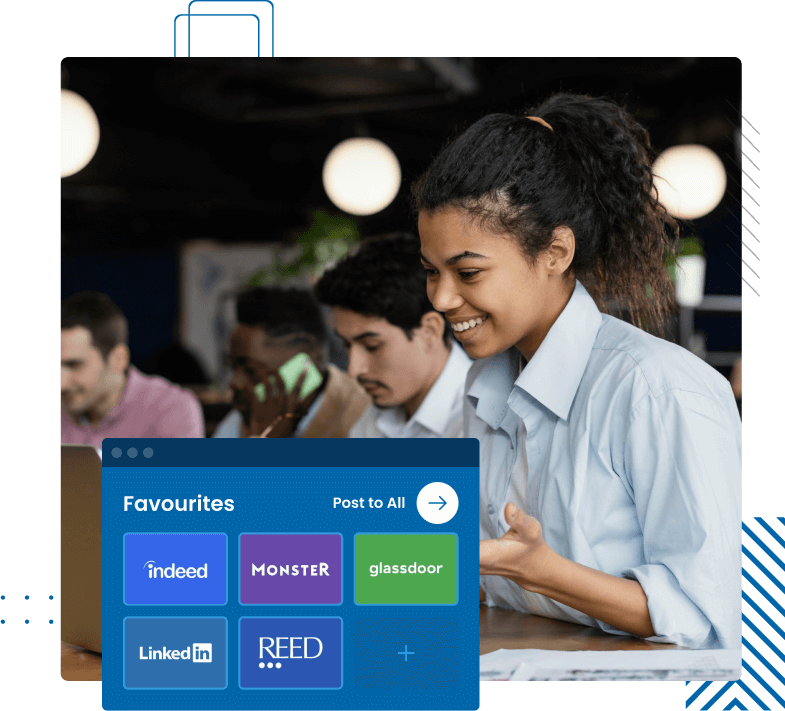The candidate interview is an important part of the recruitment function. To recruit the best talent in the marketplace, HR department, recruitment agencies and hiring managers must be in sync and educated regarding how to carry out the interview process effectively. Our HR experts aim to give you an insight into the different interviewing practices, both conventional and unconventional. It explores and analyses the most commonly used types of interview methods—telephone interviews, video interviews, face-to-face interviews and panel interviews—and explains the objectives and techniques of behavioral, competency-based and situational approaches to interviewing.
Employers must be aware of the legislation’s both federal and state regarding employment interviews and the does and don’t’s that result from it. This article puts forward some basic instructions for interviewers to follow to avoid claims of discrimination or bias in hiring, and it lists examples of questions not to ask job applicants.
With careful preparation, HR professionals and hiring managers can streamline employment interviews and obtain the information they need. Preparatory steps include selecting a technique of interviewing, drafting relevant questions, phrasing questions properly and improving one’s listening skills.
Interview Process
Interviewing is an important step in the employee selection process. If done effectively, the interview enables the employer to determine if an applicant is job fit and his skill sets, experience and personality match the job’s requirements. It also helps the employer assess whether an applicant is culture fit and whether the candidate would be able to integrate with the company culture. In addition, preparing for an interview can help clarify a position’s primary duties and responsibilities.
Moreover, to the extent that the interview process leads to the hiring of the most suitable candidate, it can help contain the organization’s long-term turnover costs. Applicants also benefit from an effective interview, as it enables them to determine if their job expectations, salary, other employment needs and interests would be fulfilled.
Types Of Interviewing
In implementing a relevant, consistent, accurate and fair selection method, the employer can select from a variety of interviewing techniques. The selection depends on considerations such as the nature of the position being filled, the industry, the corporate culture and the type of information the employer seeks to gain from the applicant.
Interviewing techniques can be either conventional or unconventional. The main purpose of structured interviewing is to evaluate job skills that are essential to the position. The interviewer asks a specific set of questions of all applicants for the particular position. This straightforward approach makes it easier for the interviewer to evaluate and compare applicants fairly. Some interviewers ask the questions in a predetermined order, while others may not adhere to a strict order but still make certain they address all the planned questions.
Structured interviewing generally provides the interviewer with the information needed to make the hiring decision. It also can be crucial in defending against allegations of discrimination in hiring and selection, because all applicants are asked the same questions.
In an unstructured interview, the interviewer does not have a strict agenda but rather allows the applicant to set the pace of the interview. Questions tend to be open-ended, which can enable the candidate to disclose more than he or she might if asked closed-ended questions requiring only a brief answer. In addition, questions in an unstructured interview can be tailored according to an applicant’s skills and experience levels. However, the absence of structure may make it difficult to compare and rank applicants because they are not asked the same set of questions.
The most widely used types of interviewing are:
- The telephone prescreen interview.
- The direct one-on-one interview, which can take a behavioral, competency-based or situational approach.
- The panel interview.
Telephone Prescreen Interview
A telephone prescreen interview can be useful for assessing whether an applicant’s qualifications, experience, skills and salary needs are compatible with the position and the organization. Telephone interviews are often used as an initial method of screening applicants to shortlist candidates who will be invited for direct interviews. During the screening phase, the interviewer should ask the applicant enough carefully prepared questions to determine whether he or she is, in fact, a suitable candidate for the job.
Telephone prescreen interviews can help the employer:
- Assess the applicant’s general communication skills.
- Understand the candidate’s expectations.
- Help communicate basic requirements of the position to the applicant including responsibilities and skills sets needed
- Clarify unclear items on the applicant’s resume.
- Ask about frequent job changes or gaps in employment.
- Have a candid conversation with the applicant about salary requirements.
Video Interviews
Due to the rise in cutting edge technology in video conferencing, video recording and streaming media, this technique has evolved rapidly. Video interviewing is a preferred method of interviewing among technology companies and those in the communications industry, but universities, community colleges, staffing agencies and multi-national companies also use this method. As companies expand their candidate searches nationally and internationally, the popularity of video interviewing is likely to continue to grow.
Video interviewing allows remote candidates to be become more relevant. Unlike conducting a phone interview or reading a resume, a video interview lets the employer observe candidates’ body language and how they answer questions; however, its key advantage is a reduction in travel costs and a more efficient use of time for both the recruiter and candidates.
Direct One-On-One Interview
The traditional face-to-face interview with the candidate can be structured or unstructured, and it can be approached in one of several ways, depending on the types of information the interviewer seeks. The three most common approaches to one-on-one employment interviews are behavioral, competency-based and situational.
Behavioral And Competency-Based Approaches.
Behavioral and competency-based interviewing both aim to discover how the interviewee performed in specific situations. The logic is based on the principle that past performance predicts future behavior; how the applicant behaved in the past indicates how he or she will behave in the future.
In the behavioral approach—a traditional technique for assessing a candidate’s suitability for a position—the purpose is to review the candidate’s experience, personal attributes and job-related skills. The competency-based approach focuses specifically on skills needed for the position; job-related skills constitute the criteria against which applicants are measured.
In a behavioral or a competency-based interview, the interviewer’s questions are designed to determine if the applicant possesses certain attributes or skills. Instead of asking how the applicant would handle a hypothetical situation, the interviewer asks the applicant how he or she did, in fact, handle a particular situation in the past. Behavioral and competency-based interview questions tend to be pointed, probing and specific.
Following are some examples of behavioral questions:
- Describe a situation in which you were able to use persuasion to successfully convince someone to see things your way.
- Describe a time when you were faced with a stressful situation that demonstrated your coping skills.
- Give me a specific example of a time when you used good judgment and logic in solving a problem.
- Give me an example of a time when you set a goal and were able to achieve it.
- Tell me about a time when you had to use your presentation skills to influence someone’s opinion.
- Give me a specific example of a time when you had to conform to a policy with which you did not agree.
If answers seem to be thin on detail, the interviewer can ask follow-up questions:
- What exactly did you do?
- What was your specific role in this?
- What challenges did you come across?
- Why precisely did you do that?
- Why exactly did you make that decision?
Competency-based interviewing can give the interviewer a sense of an applicant’s job performance and attitude toward work. Following are some examples of competency-based questions:
- Tell me about a time when you had to encourage others to contribute ideas or opinions. How did you get everyone to contribute? What was the end result?
- Tell me about a situation in which your spoken communication skills made a difference in the outcome. How did you feel? What did you learn?
- Tell me about a situation when you had to persuade others to accept your point of view when they thought you were wrong. How did you prepare? What was your approach? How did they react? What was the outcome?
Situational Approach
The situational approach is an interview technique that gives the candidate a hypothetical scenario or event and focuses on his or her past experiences, behaviors, knowledge, skills and abilities by asking the candidate to provide specific examples of how the candidate would respond given the situation described. This type of interview reveals how an applicant thinks and how he or she would react in a particular situation. The following are examples of situational interview questions:
- You have been hired as the HR director in a 300-employee company and are struggling to perform the necessary HR administrative work by yourself. Your manager, the CFO, tells you that you need to be more strategic. How would you handle this situation?
- You learn that a former co-worker at your last company is applying for an accounting position with your company. You have heard that this person was terminated after admitting to embezzling funds from the company but that no criminal charge was made. You are not in HR. What, if anything, would you do?
- You are applying for a customer service position in a cable television company. If a technician visits a home to make a repair and afterward you receive a call from the customer telling you that the technician left muddy footprints on her new carpeting, how would you respond?
Group Interviews
There are two types of group interviews—a candidate group and a panel group. In a candidate group interview, a candidate is in a room with other job applicants who may be applying for the same position. Each candidate listens to information about the company and the position and may be asked to answer questions or participate in group exercises. Candidate group interviews are less common than panel group interviews.
In a panel group interview a candidate is interviewed individually by a panel of two or more people. This type of group interview is usually a question-and-answer session, but a candidate may also be asked to participate in an exercise or test. Panel interviews can be either structured or unstructured. When organized properly, a panel interview can create a broader picture of the candidate than a one-on-one interview would produce. Even weaker interviewers can learn by observing. Panel interviews can also help less-experienced employees get involved in the hiring process.
The panel should include no more than four or five people; a larger panel could be intimidating and unwieldy. One interviewer should serve as the leader, and other participants should serve in support roles. While all the interviewers need to be involved throughout the interview, the difference in the two roles needs to be very clear.




